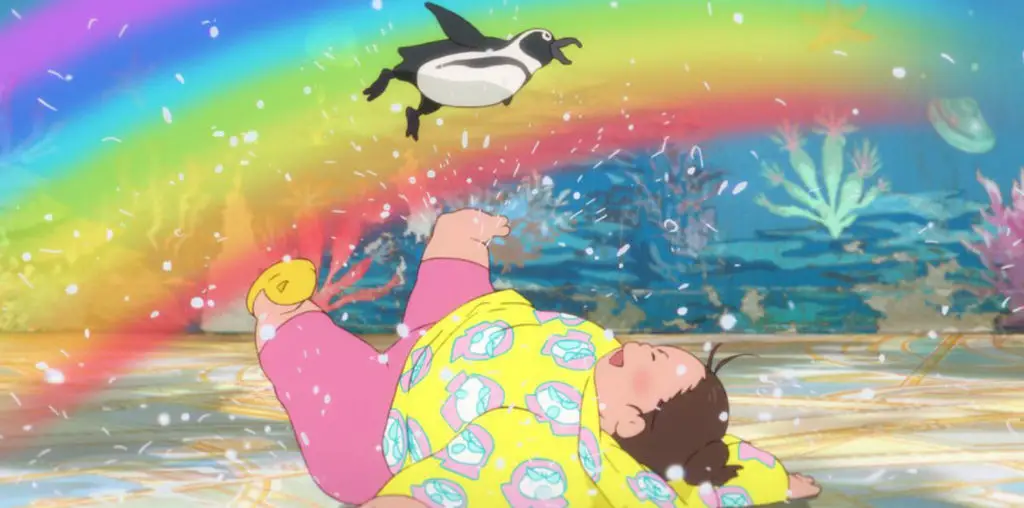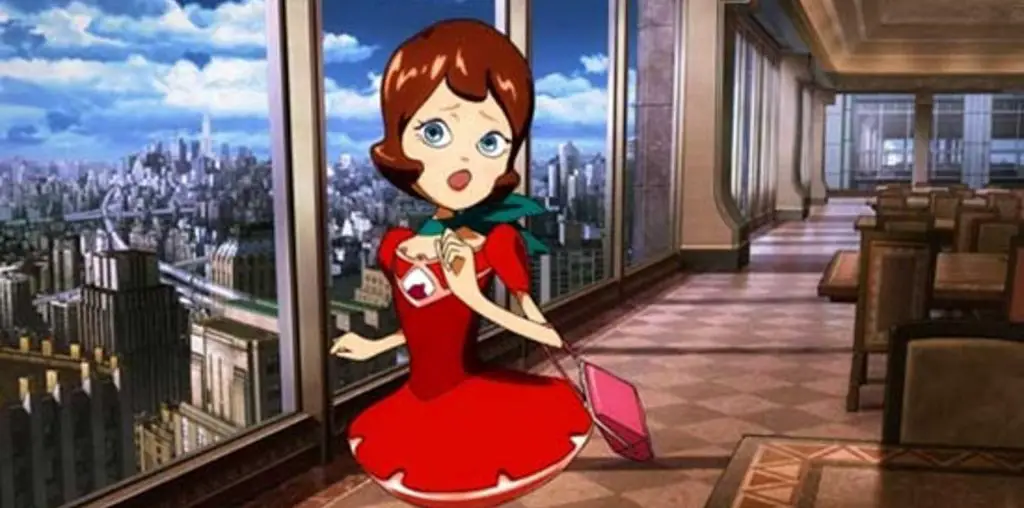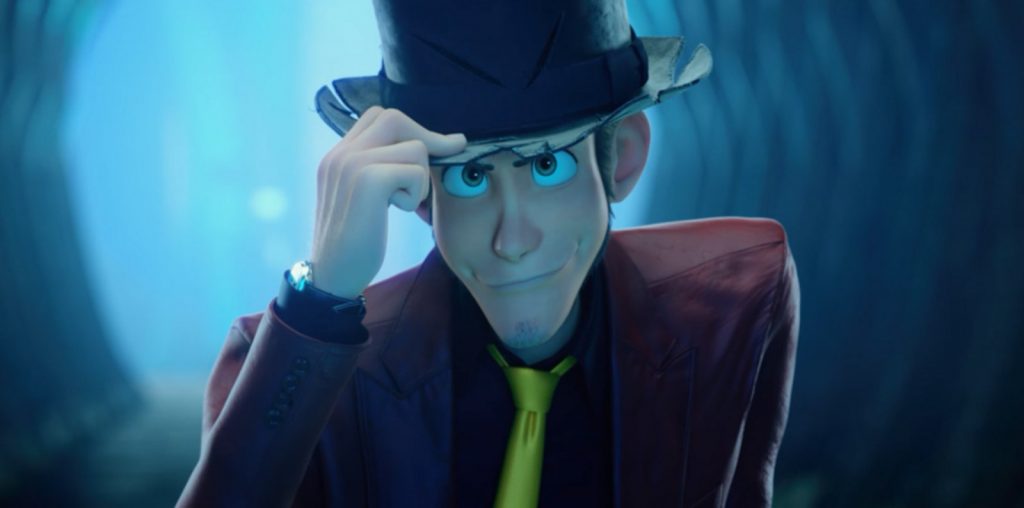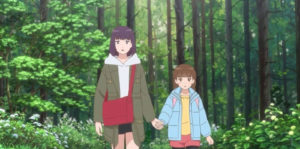
The House of the Lost on the Cape is seven different shades of spellbinding, each shade more incredible than the last. I love how the fantasy elements are slowly injected into the muscle of the gritty dramatic material. The earthquake’s devastation perfectly symbolizes the destroyed domestic relationships the girls are walking away from. Yui and Hiyori’s slow recovery from post-trauma is realistic and earned. The way the rubble falls away into lush green forests as they get closer to the stability of the house in the woods is a particularly poignant emotional image.
The first hint that the house is alive is handled in such a small, subtle way that you forget it’s in play while the girls adjust. So when the fairy folk comes to dinner, it is nearly a complete surprise. The premise that the legends in folk tales still exist secretly in daily life is handled wonderfully. There is a mastery in which traditional mythology is built in reality, like the way it was in The Sandman comics. By the time we arrive at the traditional giant monster attack, it feels organic to the story instead of obligatory to the genre. The dance between fantasy and symbolism is intricate and fast. There are also so many poetic images, like people’s grief taking form as blossoms that grow between their shoulder blades to be bitten off by snakes. I told you it was super lovely.
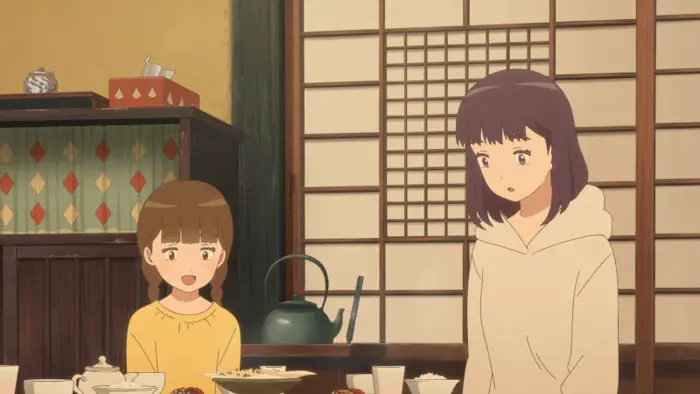
“The amazing visuals send a warm breeze through your daily struggles.”
The animation is stunning, like a stairway of paintings to the moon. The landscapes are full of tiny details that glue the eyes to the screen, whether broken buildings or gorgeous nature. There is also a stylistic flourish where the animation style changes for Kiwa’s folk tales, reverting to a more abstract and primitive look that is brilliant. The nature images also instill a soothing sensation that would actually help calm real PTSD sufferers down. The amazing visuals send a warm breeze through your daily struggles. It has the gentle shimmering power of a far-off exploding star. There is also a spare use of music that works wonderfully, with many scenes in silence with ambient daytime noises in the background. It makes the moments of music and magic more effective.
I can see The House of the Lost on the Cape appealing to audiences outside of the anime scene, as its subject matter and pacing has lots of crossover appeal. I am mostly a stranger to the format and absolutely loved it. If you love someone who loves you but not your anime, show them this. It is a great film to show the uninitiated what all the fuss is about. Shin’ya Kawatsura’s film will transport you to a higher plane of wonder far above the broken pavement of this world.
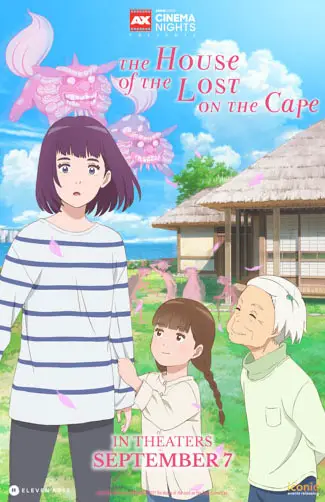
"…seven different shades of spellbinding, each shade more incredible than the last."
